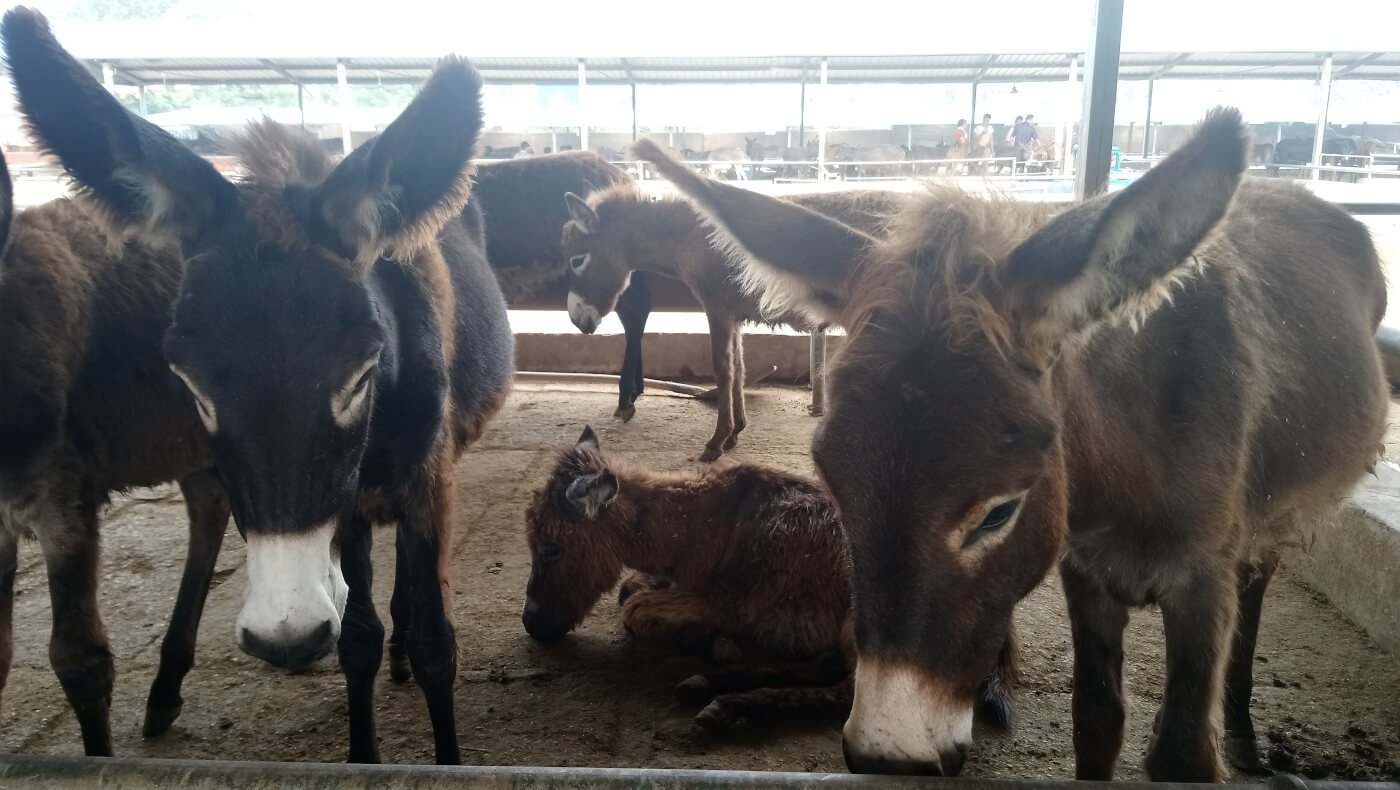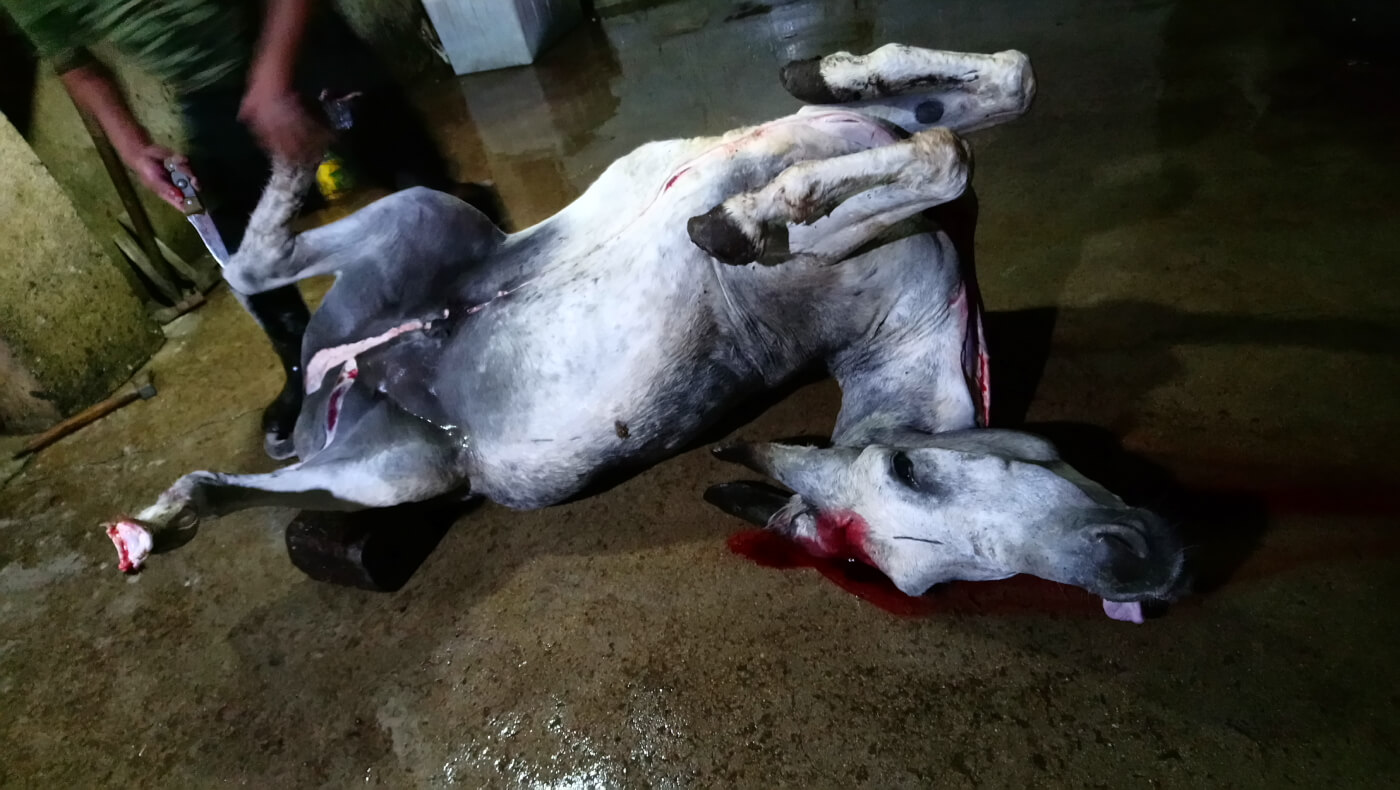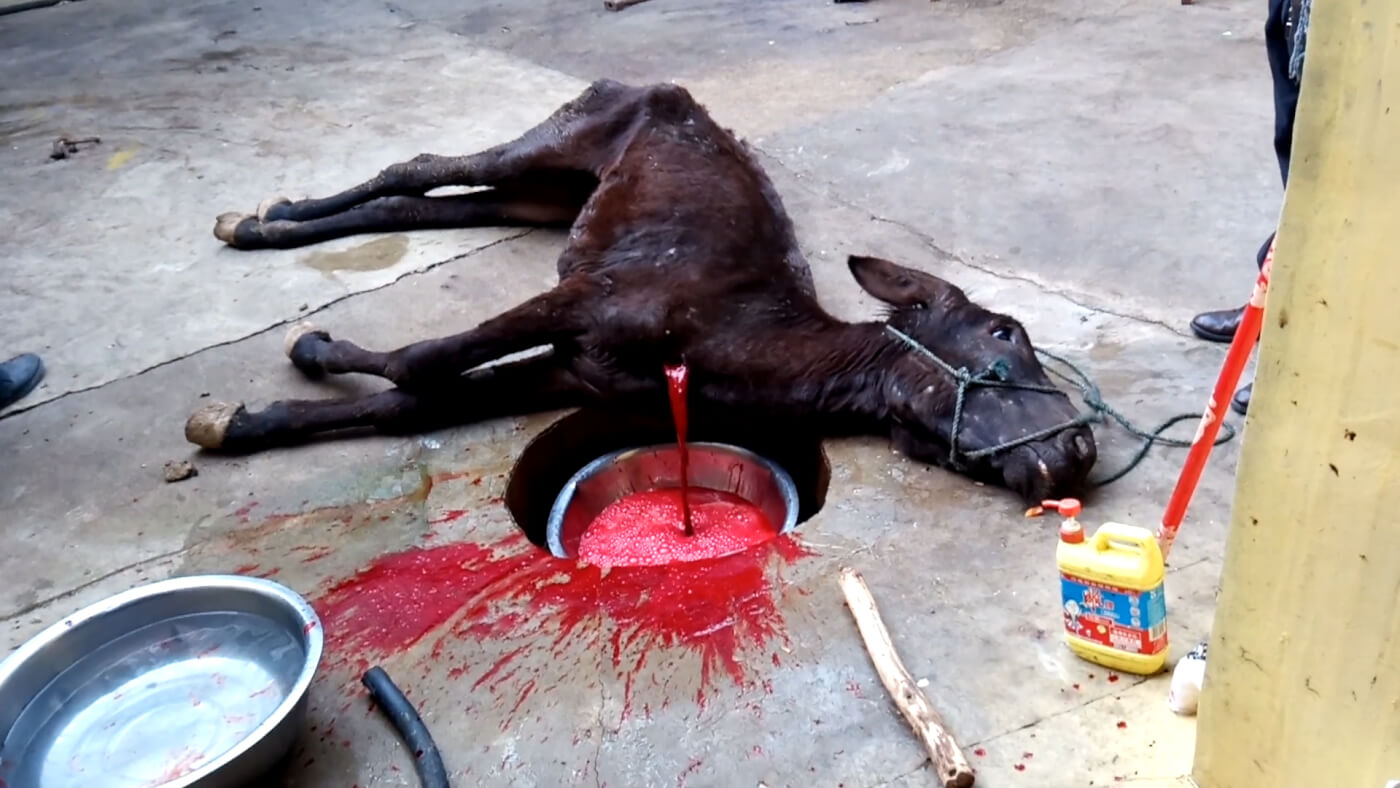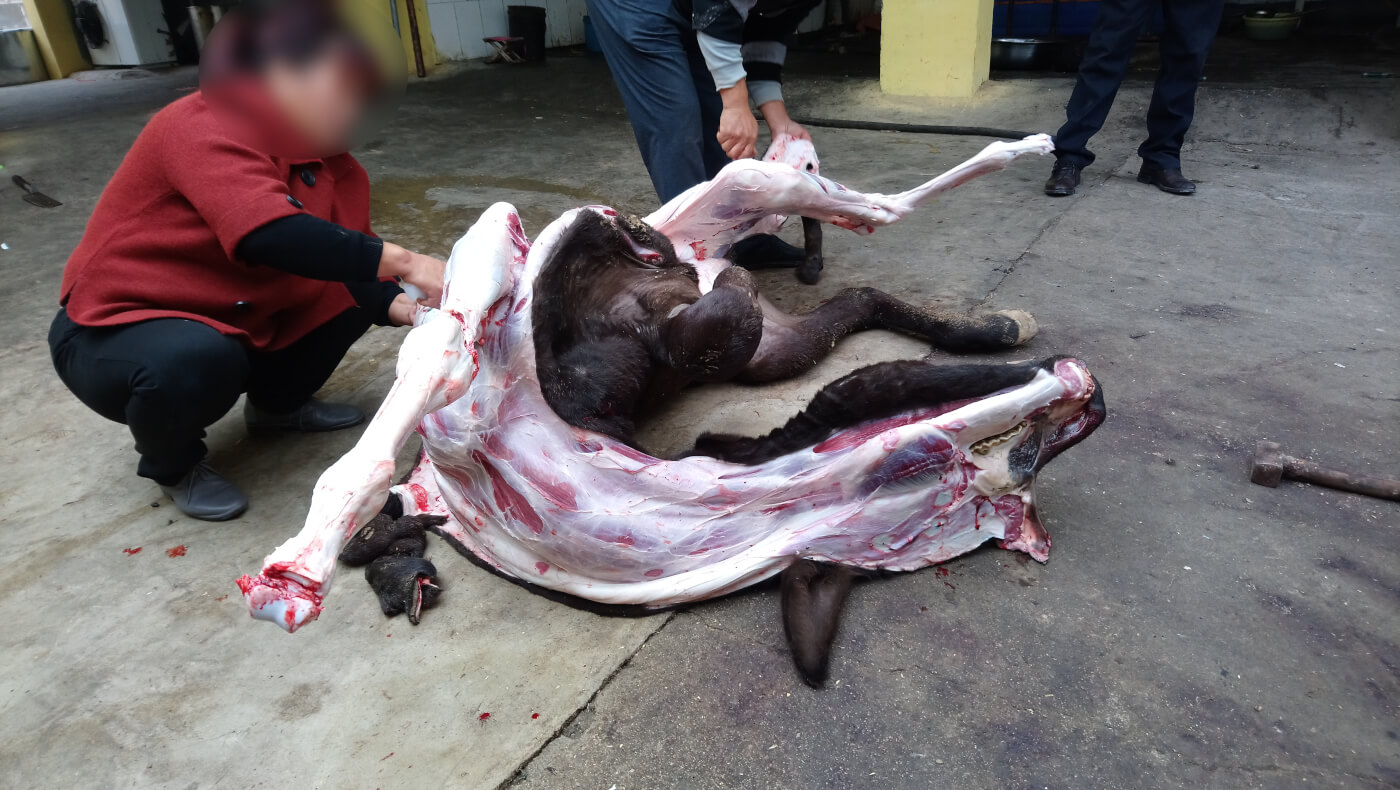UN INT Intro Text w/ Centered Large Responsive Image - *Important Note* You must UNLINK this shared library component before making page-specific customizations.
At every farm visited by PETA's observer, donkeys were confined to small, filthy concrete-floored pens. Kept outdoors, they were only partially protected from the elements by a tin roof, and many were seen standing in their own waste. The only water available to them was filthy and green with algae. One donkey was so malnourished that his ribs stuck out. Another was so sick that he couldn't walk, so he was dumped into the bucket of a tractor and hauled away. Workers confided to the PETA observer that they were concerned that environmental inspectors would fine them or shut down the facility.
At a donkey market, the PETA observer documented that hundreds of doomed animals were forced to wait in crowded pens in the hot summer sun for their turn to be bought and then sent to a farm for slaughter. Terrified donkeys were beaten with sticks, including one who was hit and screamed at when she attempted to escape through a gate that was left open.

At the end of their lives, they're killed in an inhumane way. Video footage shows farmers swinging a sledgehammer at a donkey's forehead and then cutting the animal's throat. Some of the donkeys continue to breathe and move after being bludgeoned.



Today, the market for ejiao is growing rapidly – it can be found in beverages, candy, and even beauty products. Donkeys are now being imported into China for slaughter from other countries in Asia and from nations in the Middle East, Africa, and South America in order to meet the demand. While some countries, such as Pakistan and 10 African nations, have closed Chinese-funded slaughterhouses and developed policies to ban the export of donkey skin to China, others, like Australia, are shamefully considering opening up a live-export trade. The industry is fueling a black market for donkeys, and many are being stolen or slaughtered illegally so that people can profit from China's medicinal market. The demand is so high that other animals, such as horses, pigs, and cows, are now suffering the same gruesome fate in the production of fake ejiao.
According to Dr. Lee Yuming, "There is a misconception about ejiao – it is not the most effective medicine to improve blood circulation in spite of its long history in traditional medicine. Nowadays, there are many other options that are much more effective in improving one's health, including modern drugs and herbal medicines."
The Northern Territory government in Australia exports donkey hides to China to fuel the cruel ejiao industry and is considering expanding this business by implementing a live-donkey export industry. Please urge Agriculture Minister Murray Watt to reject any plans to send live donkeys to be slaughtered in China immediately.